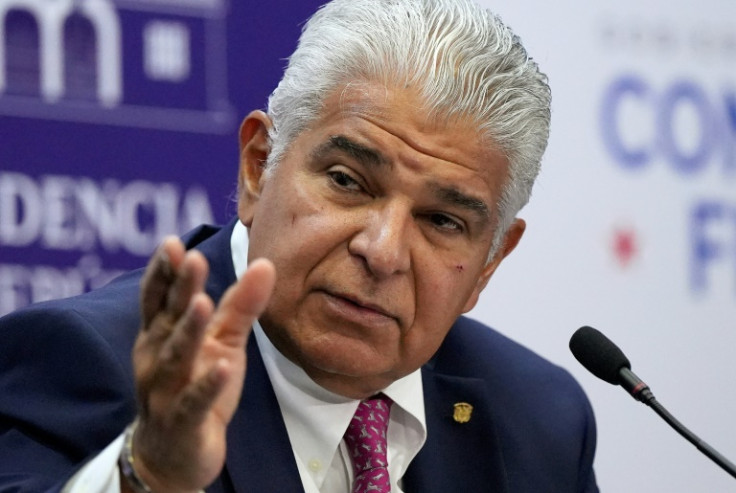Panamanian President Rejects Trump's Claims Of Chinese Interference In The Panama Canal: 'Nonsense'
Jose Raul Mulino has also rejected any chances of lowering rates after U.S. President-elect Donald Trump said the country should take back the route

Panamanian President Jose Raul Mulino rejected the notion that there is Chinese interference in the Panama Canal, further denying U.S. President-elect Donald Trump's claims about the key trade route.
"There is absolutely not any interference" from the country, Mulino said during a press briefing, asked about Trump's message which mockingly wished a merry Christmas to "the wonderful soldiers of China, who are lovingly, but illegally, operating the Panama Canal."
Visibly irritated, he then said "there are no Chinese soldiers in the canal, for the love of God." "There is not a single Chinese soldier in the canal."
Mulino went on to detail Panama is open to investment from any interested parties: "If they're Chinese, if they're Costa Rican, if they're American, all who want to invest in the country are welcome." "There is no discrimination here in foreign investment," he added.
Axios detailed that the Chinese government has recently made large investments in the Canal Zone, "raising concerns about its neutrality." A report by the Center for Strategic and International Studies published in 2021 claimed that the country's "increasing presence in and around the Canal has made the waterway a flashpoint for U.S.-China competition over spheres of influence."
The issue has been at the forefront of the public conversation for the past week since Trump criticized the fact that the U.S. gave up the canal and suggested the country should take it back.
"We're being ripped off at the Panama Canal. If the principles, both moral and legal, of this magnanimous gesture of giving are not followed, then we will demand that the Panama Canal be returned to the United States of America, in full, quickly and without question," Trump said at Turning Point USA's AmericaFest in Arizona.
The United States built the Panama Canal in the early 1900s to make it easier for commercial and military ships to travel between its coasts. On Dec. 31, 1999, the U.S. handed control of the canal to Panama under a treaty signed in 1977 by then-President Jimmy Carter. The central American nation voted in favor of a $5.2 billion expansion of the canal, which was completed in 2016.
The canal relies on reservoirs to run its locks, but Central American droughts in 2023 immensely reduced water levels. This led to fewer daily crossings and higher fees for ships reserving a slot.
The threat has caused protests in Panama, with some even burning the American flag as well as an image of Trump. The demonstrators, who collected outside of the U.S. embassy in Panama, chanted anti-Trump slogans in which they vowed not to give up their territory.
Originally published in Latin Times
© Copyright IBTimes 2025. All rights reserved.





















